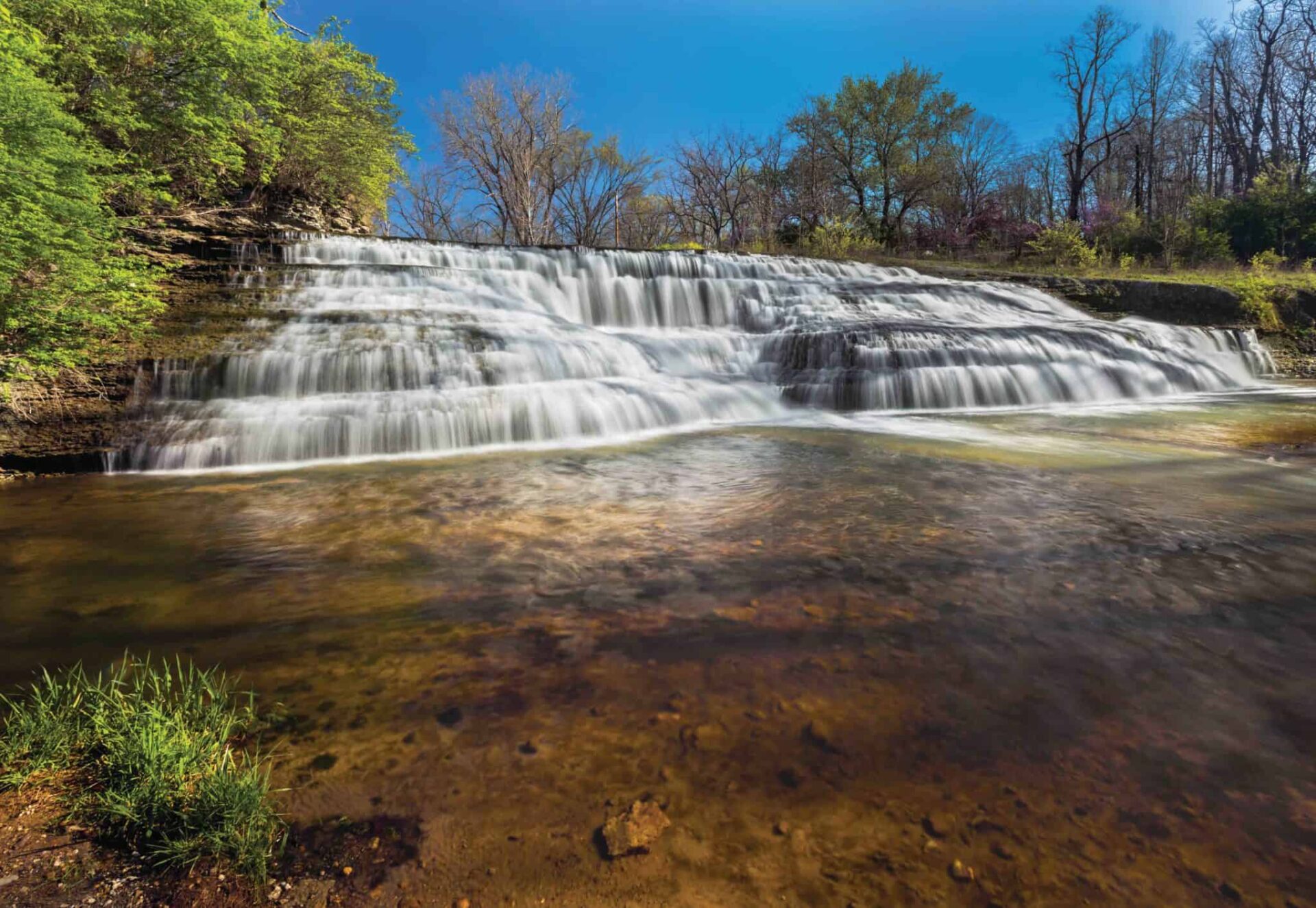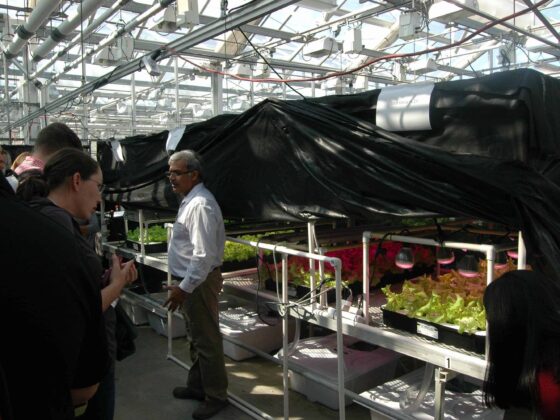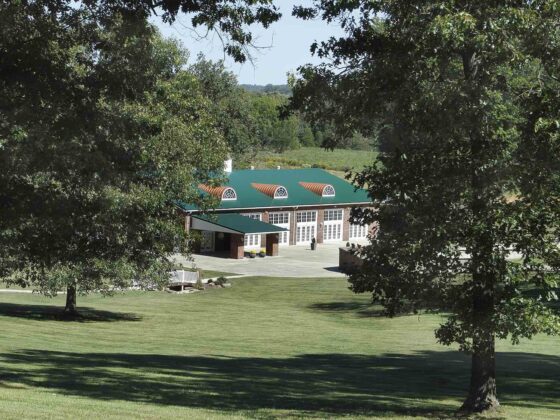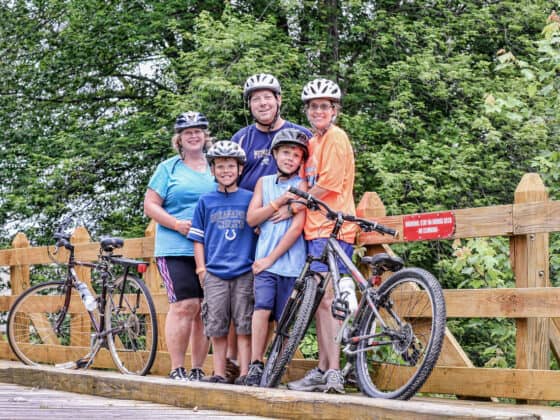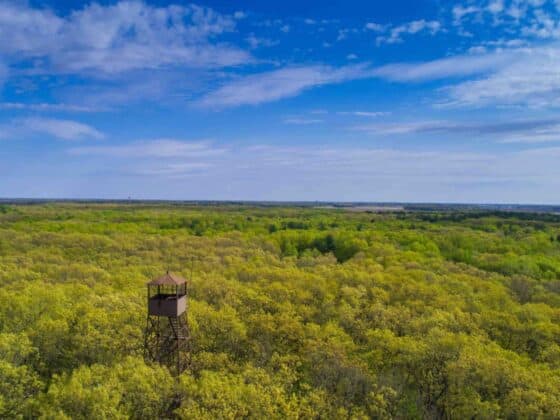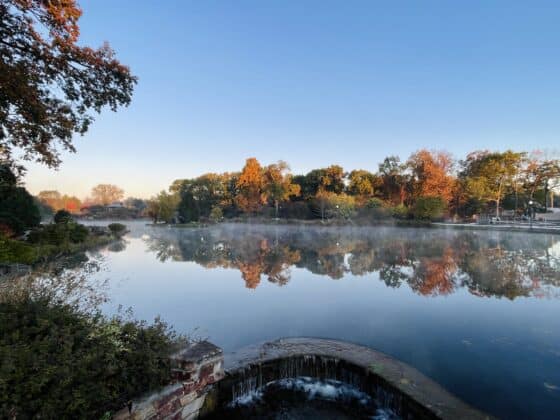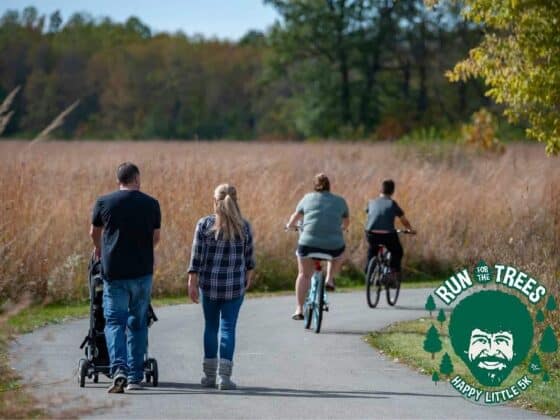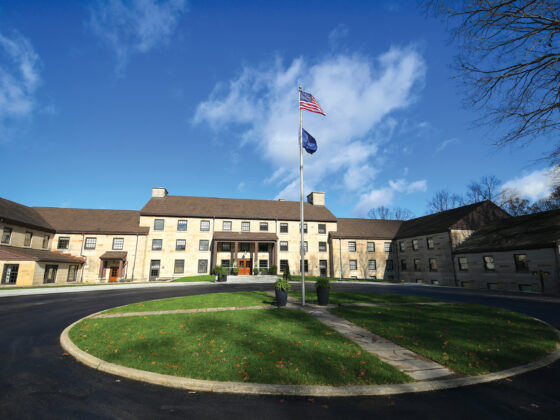Story by Elizabeth Granger
With two world-class environmental centers and a variety of trails, Wayne County’s mantra could well be “take a hike.” Meant in the most positive way, for a profusion of physical, mental and spiritual reasons.
With 466 acres, Hayes Arboretum offers hiking trails, ponds, fields, wetlands and an Indian Mound. It has three percent of the state’s old growth forest plus acres of reforested land. Four generations of the Hayes family have worked this land, carrying on Stanley Hayes’ commitment to not only preserve and protect nature but also share it with the public through recreation and education. He had the foresight to guarantee its future by creating a foundation in 1959.
“Native trees and reforestation – that was his passion, his hobby,” says great-grandson Steve Hayes Jr. “He wanted more people to have his love of reforestation.”
It means, for this arboretum, native plant material from the Whitewater River Valley, a long educational history, and environmental stewardship. “People come here to learn – we’re definitely an educational facility – and to experience nature. We’re as much a part about the indoors as we are the outdoors,” Hayes says.

In April 1963 the land was opened to the public; more than 1,000 cars were lined up to get in. Admission was free then; it’s still free now.
“The No. 1 thing people like about the Arboretum is the hiking trails,” Hayes says. “Come run through the woods. Bring your dog.”
There are 16 miles of trails, mountain bike trails, a 3-mile auto tour, guided hikes that include a meditation hike, a Native American history hike, children’s outdoor playscape, butterfly garden, nature center, and history museum. Education is big, with classes and day camps for pre-schoolers through adults. Woodcarving is popular; beginners start by carving a bar of soap.
Be aware that the main entrance is open 9 a.m.-5 p.m. Tuesday-Saturday but the East Side Trails entrance is open dawn to dusk every day.
The Cope Environmental Center, just west of Richmond, was born in 1992 when educators Jim and Helen Cope transformed their farm into a nature center with botanist, arborist, and conservationist Francis Park.
Marketing director Erica Hile says it’s all about “promoting sustainable use of Earth’s resources through education, demonstration, and research.”
People visit primarily for the nature programs. “We want people to be outside,” Hiles says. “People want to be entertained, and recreation is a big part of that – to go out and de-stress from their day. We’ve got three miles of hiking trails through beautiful habitat.”
Kids, she says, love the wetlands because “they can go into the water and catch frogs.” A nature playscape is “kind of hidden” – so people just come across it. “It has logs to climb on, stumps to roll over, plants to smell and touch and even eat. We want kids to get out and learn how to just be kids, and to take safe risks. We have a lot of kids who are fearful. When nature gives them a benefit, and they’re having fun with it, they learn to care for it and be stewards.”

Cope’s education building is a “living building” made from mostly local, sustainable, toxin-free and energy efficient materials.
As at Hayes Arbotetum, admission to the trails at Cope is free.
The American Discovery Trail, with 6,800 miles of multi-use trail stretching from Delaware to California, goes through Wayne County. One of its local trails is the Cardinal Greenway, Indiana’s longest rail-to-trail covering 62 miles from Richmond to Marion.
It goes through Whitewater Gorge Park as the Whitewater Gorge Trail. In addition to part of the city, this urban trail passes local geology and history, taking in Thistlethwaite Falls, the Starr-Gennett Logo building and Gennett Records studio site and Musicians’ Walk of Fame.
County and city parks offer additional trails in Glen Miller Park, Springwood Park, and Middlefork Reservoir. Earlham College and I.U. East invite walkers to their campuses.
Explore Wayne County’s cultural/ food/arts trails; they’ve got them for chocolate, murals, fairies, alcoholic spirits. Stroll along city sidewalks; window-shopping can be enjoyable and is ever so easy on the pocketbook. Antique stores are especially inviting when their wares are displayed outside.

Some of the trails invite bikers. Work is nearly completed on the new bike/pedestrian pathway which connects downtown Richmond, the Historic Depot District and the Cardinal Greenway. FREE bike rentals are available at Cycling and Fitness Warehouse in Richmond.
The area offers golf, birding, and gardens. Try disc golf, or pickleball. Be a spectator at the Richmond Jazz Baseball, a Collegiate Summer Baseball League played at the Historic McBride Stadium.
On Saturday nights in August, Richmond Parks and Recreation invites film buffs to “Movies in the Glen” at Glen Miller Park. In the fall, pick apples at Dougherty Orchards, the oldest family owned apple orchard in the state.
There’s more, and the Wayne County Convention and Tourism Bureau has got it covered. Check it out for Recreation’s 3 R’s – you know, refreshment, relaxation, and rejuvenation.
For more information go to www.visitrichmond.org.


